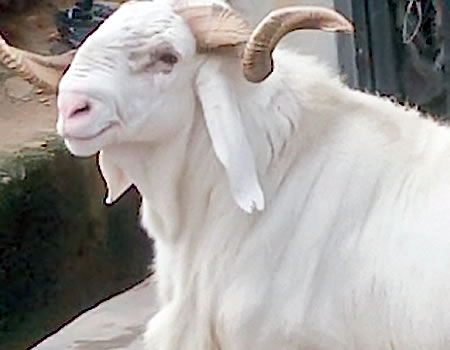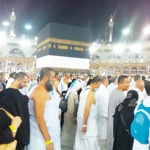However, it is imperative for us to know the guidelines for sacrificing our animals so that our gesture will be accepted from us as an act of submission to Allah. The following hints may come handy for Muslims willing to sacrifice an animal in commemoration of this joyful event:
The animal that you will be sacrificing next week for Eid-el Kabir, the great festival, must be without blemish and of full age. It may be a goat, a sheep, a cow, or a camel.
A person that will slaughter an animal on the day of Festival should be a Muslim, male or female, old or young, who has power to do it. He should also be a free man. A person can be a resident or a traveller.
Animals can be slaughtered on the day of the festival or the second day or the third day, only after the Imam has slaughtered his own animal. For those who slaughtered their own animal a day before the day of sacrifice or early morning before going to the praying ground – for one purpose or another – their sacrifice will not be accepted from them.
The animal to be sacrificed for the festival should not be one-eyed, blind, lame or very thing. If you sacrifice a fat animal, it will serve you well. The animal should be laid on the ground and turned towards the Ka’bah and then, you say: “Bismillah. Allah Akbar,” meaning in the name of God. God is great. The person should hold the neck of the animal tight till it is completely dead.
An animal slaughtered from the back of the neck or on which name/names other than that of God is mentioned is also not fit for the occasion. Such animals that are unfit for the festival are not fit for even the naming ceremony of a newborn baby.
The holy Qur’an says: Forbidden unto you (for food) are carrion and blood and swine flash, and that which has been dedicated on to any other than Allah… (Qur’an 5 verse 3)
It is not even acceptable to mention “in the name of Muhammad” or “in the name of Jesus” or “in the name of Ibrahim” or any other prophets or angels or anything other in slaughtering an animal other than the name of God. A woman can as well slaughter her animal by herself if she can follow the condition.
However, if the owner cannot slaughter the animal by himself or herself, he or she can stand beside the person who would do it on his or her behalf. Then he or she will recite these Qur’anic verses: “Surely, my worship (salaat) and my sacrifice and my living and my dying are for Allah, the Lord of the worlds. He has no partner. This I am commanded and I am first of those who surrender (unto Him). (Qur’an 6 verses 163-164).
Then the flesh of the animal will be divided into three parts, one third of which is retained by the family. Another third is given to relatives, friends and neighbours and the remaining third is given to the poor and needy. Know that the flesh of animals and their blood reach not Allah but the devotion from you reaches Him.
Lastly, this praise will be recited after Salaatu-Dhuhur on festival Day until the early morning of the fourth day after Salaatul-Fajr: Allahu Akbar, Allahu Akbar, LLahu Akbar, Laa I laha ila’ LLahu wa llahu Akbar, LLahu Akbar Wali’ LLahil-hamdu, meaning “God is great! God is great! God is great! There is none worthy of worship except God. And God is great! God is great! All praise be to God.”
Imam Ora-nkan is the Imam of Moboluwaduro Mosque, Eyin Grammar, Molete, Ibadan.






